1. Clinical Trial
A clinical trial is a research study that involves human participants to evaluate the effects and safety of medical treatments, drugs, therapies, or medical devices. It is a critical part of the clinical development process, helping to determine whether a treatment is safe and effective for public use.
2. Clinical Research Organization (CRO)
A CRO is a company that provides outsourced services to the pharmaceutical, biotechnology, and medical device industries, typically focusing on the management and execution of clinical trials. Adriaticro is a leading CRO, offering customized clinical research solutions to clients.
3. Good Clinical Practice (GCP)
GCP is a set of internationally recognized ethical and scientific quality standards for designing, conducting, recording, and reporting clinical trials. Adhering to GCP guidelines ensures patient safety, the integrity of trial data, and compliance with regulatory authorities.
4. International Conference on Harmonization (ICH)
ICH is an organization that brings together regulatory authorities and the pharmaceutical industry to harmonize and establish global standards for drug development and clinical trials. ICH guidelines help ensure the safety, quality, and efficacy of pharmaceuticals while promoting international consistency.
5. Pharmacovigilance
Pharmacovigilance involves the monitoring and assessment of the safety of medical products, particularly drugs and medical devices, once they are on the market. It focuses on detecting, evaluating, and preventing adverse effects or any other drug-related problems.
6. Regulatory Support
Regulatory support refers to the guidance and assistance provided to clients in navigating the complex regulatory environment to ensure compliance with local and international laws and regulations. This service includes preparing and submitting documents for regulatory approvals.
7. Patient Recruitment
Patient recruitment is the process of identifying and enrolling suitable participants for clinical trials. It involves selecting candidates based on specific inclusion/exclusion criteria and ensuring they meet the requirements to participate in the study.
8. Patient Retention
Patient retention refers to the strategies and activities designed to maintain participant involvement throughout the course of a clinical trial. Successful retention strategies ensure that patients continue participating until the trial concludes, which is crucial for the integrity of the trial data.
9. Clinical Trial Management
Clinical Trial Management (CTM) encompasses all the tasks associated with planning, conducting, and overseeing clinical trials. This includes managing the project timeline, budget, compliance, data collection, and monitoring to ensure the trial progresses smoothly.
10. Medical Writing
Medical writing is the creation of scientific documents related to clinical research, such as trial protocols, reports, regulatory submissions, and publications. It is essential for ensuring that all research findings are presented clearly, accurately, and in compliance with regulatory requirements.
11. Study Design
Study design refers to the detailed plan that outlines the objectives, methods, and procedures for a clinical trial. It includes defining the target population, determining the treatment regimen, and establishing the methodology for collecting and analyzing data.
12. Data Management
Data management involves collecting, storing, and analyzing clinical trial data in a secure, accurate, and consistent manner. Proper data management ensures that trial results are reliable and meet regulatory standards.
13. Regulatory Approval
Regulatory approval refers to the process of obtaining permission from regulatory authorities to conduct clinical trials and market medical products. This process involves submitting clinical trial data and other relevant information to regulatory agencies, such as the FDA or EMA, for evaluation.
14. Key Opinion Leaders (KOLs)
Key Opinion Leaders (KOLs) are respected experts in specific medical or scientific fields whose insights and opinions are highly valued by the industry. Adriaticro collaborates with KOLs to ensure the success and credibility of clinical trials.
15. Biotech
Biotech refers to the industry involved in the development and commercialization of biological products using living organisms or biological systems. It includes the creation of biopharmaceuticals and genetic therapies.
16. Pharmaceutical
The pharmaceutical industry focuses on the development, production, and marketing of medications used to treat various diseases and conditions. Adriaticro partners with pharmaceutical companies to support clinical trials for new drugs and treatments.
17. Medical Devices
Medical devices are instruments, machines, or implants used for medical purposes, such as diagnosis, treatment, or monitoring of patients. Clinical trials are essential for evaluating the safety and efficacy of medical devices before they are approved for use.
18. Ethics Committee
An Ethics Committee (also known as an Institutional Review Board or IRB) is an independent body that reviews and approves clinical trial protocols to ensure they comply with ethical standards, prioritizing patient safety and welfare.
19. Phase I, II, III, and IV Trials
Clinical trials are conducted in phases to evaluate new treatments at different stages of development:
- Phase I: Testing for safety, dosage, and side effects in a small group of healthy volunteers.
- Phase II: Testing for efficacy and side effects in patients with the condition being studied.
- Phase III: Large-scale testing to confirm efficacy and monitor adverse reactions in a broader patient population.
- Phase IV: Post-marketing studies to track long-term effects and additional data after a product is available to the public.
